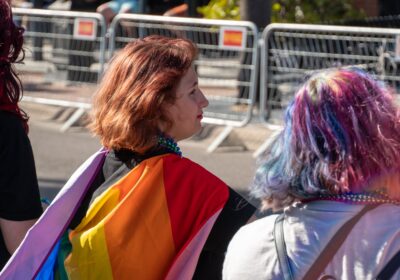Lecture questions why so few terrorists?
The question was simple, yet it carried lots of controversy with it.
If terrorism can be done as easily as creating a homemade bomb or other do-it-yourself means, then why are there so few terrorists?
This question, among others, was posed to an audience of several dozen in the Grace Allen Room of the Library Monday afternoon. The man asking the questions was Charles Kurzman, a professor of sociology at the University of North Carolina (UNC) Chapel Hill and author of recent book The Missing Martyrs.
Unlike most presentations on terrorism, Im going to say that terrorism is not such a huge problem, Kurzman said. Its not the large problem many of us expected after 9/11.
Kurzmans lecture served as the inaugural headline for the Citizenship Initiative Speakers Series, a lecture series designed to prepare USF students for global citizenship.
Furthermore, he said, the connection between Islamic fundamentalists and terrorism wasnt strong either.
If even 1 percent of the worlds billion Muslims, or even 1 percent of Muslims in the U.S. who number in the millions, were interested in doing this violent activity, there is no way they could all be stopped, Kurzman said. We would be seeing attacks, we would be seeing arrests, every day and all over. And yet were not we dont see it.
Kurzman began his lecture with an example of terrorism that hit close to his home in Chapel Hill. In March of 2006, a UNC student, Mohammed Taheri-Azar, acted upon his radical views of the Quran, Kurzman said.
The student originally had plans ranging from purchasing a firearm and shooting as many students as possible, to joining the air force to gain access to nuclear bombs or traveling to Middle East to help Afghan insurgents.
Taheri-Azar gained national attention in 2006 when he decided to rent a truck and drive it through a highly populated student recreation area on campus called The Pit.
Though there were no deaths, Taheri-Azar ran over nine students, Kurzman said. Kurzman asked the audience if an act of terrorism can be as easy as driving a car, then why arent terrorists more numerous?
Its remarkable it hasnt happened more often, Kurzman said.
In his lecture, Kurzman referred to several translated documents from the Taliban and al-Qaida, attempting to recruit people in America. These documents told how simple it was to be a terrorist, blowing up a car or cutting the brakes on a truck.
These ideas are simple. Anyone who wanted to be could be a terrorist, and yet we see so little of it,
Kurzman said.
Kurzman said the expectations of terrorism stem from disproportionate fear in the world.
We havent seen the level of violence we were prepared to see after 9/11 to be braced for, Kurzman said. Yet our resource allocation still seems to be tilted in the direction of those major threats that have not materialized.
Though Kurzman said acts of terrorism have picked up in Iraq, Pakistan and Afghanistan, society is now in a relatively peaceful era. Kurzman explained that current acts of terrorism are no more frequent than those that happened in the 1970s and 1980s.
We have this idea that we live in a dangerous world and we need to be protecting ourselves constantly in a permanent state of emergency, he said. We are living in a relatively peaceful time. One of the unremarked phenomena of our era is that war between governments has almost entirely disappeared.
Governments, which he said have far more capability to engage in mass violence, are no longer fighting against each other.
After the fighting between the U.S. and Iraq and the conflicts between India and Pakistan in 2003, Kurzman said there was a historically unprecedented peacetime of four years where no government on the planet was fighting any other foreign power.
Kurzman said the reason terrorism gets so much disproportionate attention is because of media coverage.
Terrorists live on public attention, he said. If we did not cover it in the media, their plots would have failed. The force multiplier for terrorism is our response.
Kurzman acknowledged the importance for the media to cover the events, but emphasized how much power it gives to terrorists.
Crystal Corona, a junior majoring in public health, attended the event and said she agreed strongly with the point of the lecture.
Its really interesting, Corona said. Certain people, like journalists, will give it so much attention that the terrorists are winning and getting what they want.
Kurzman went on to explain that almost all Muslim leaders have denounced terrorist attacks on civilians as un-Islamic, and except for some issues, agree strongly with Western ideals of democracy.
Muslims and non-Muslims have relatively similar levels of belief in democracy and democratic ideals, he said. It is important as we study terrorism to study non-terrorism or the lack of terrorism. (We should not) forget that the vast majority of Muslims are not engaging in these acts of terrorism and would never
want to.






